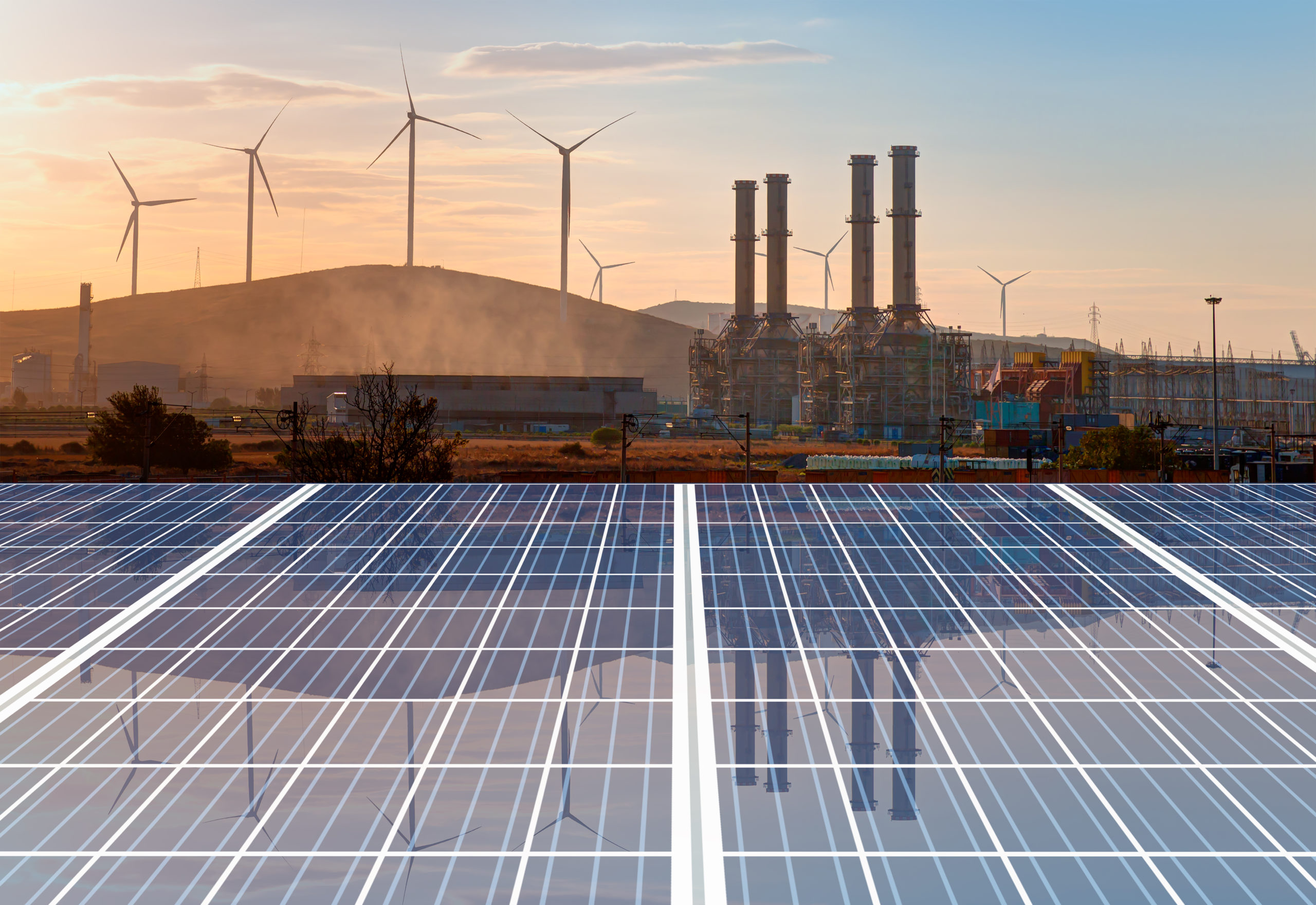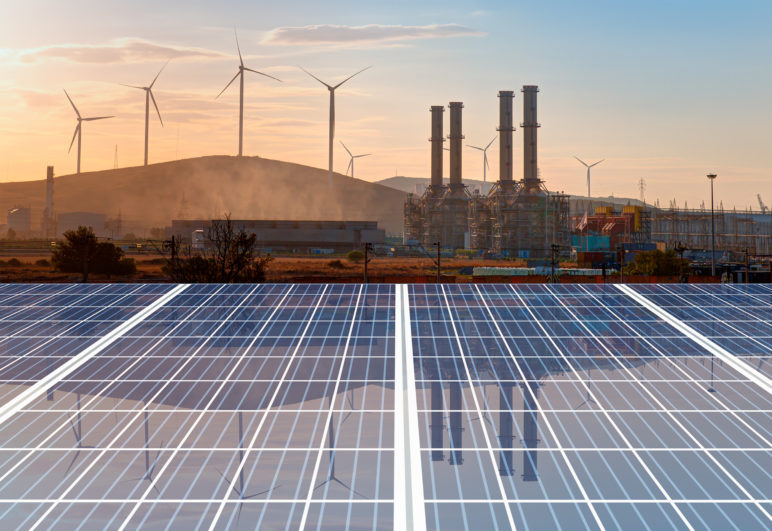Gas utilities are facing an existential crisis: fossil fuels have no future in a decarbonized economy. Yet that bit of reality hasn’t shocked utilities into changing course, not even in the Northwest, where state climate targets are flatly incompatible with continued gas usage.
Rather than adapt, these utilities are doubling down on gas with a deceptive campaign centered on “renewable natural gas” (RNG). The problem, as we detailed in our first exploration of RNG, is that it has four fatal flaws: cost, availability, carbon footprint, and industry obfuscation. In this installment, we will dive into industry obfuscation, which we think is the most toxic. The gas industry uses RNG as a smokescreen to mask its real intention of maintaining its climate-unfriendly status quo.
Before we go any further, we want to acknowledge right up front that RNG does have a few worthwhile applications. For example, some waste facilities and farms capture their otherwise-wasted methane gas and use it to generate heat or electricity on-site. And, in the future, it may make sense to substitute RNG for fossil fuel gas where a truly net-zero carbon solution doesn’t exist, as is the case for some industrial processes. But these are niche applications. In no way should we pin our energy hopes on RNG.
The industry’s playbook
After decades of touting natural gas as a “bridge fuel” for climate progress, a tactic that is alarmingly deceptive, the industry started losing its public relations fight. The localized impacts of fracking along with the global imperatives of carbon reduction were finally taking a toll on its reputation. By 2017, the anti-fossil fuel “keep it in the ground” movement was catching the attention of business leaders in the natural gas sector.
Meanwhile, Northwest cities and states were starting to zero in on gas in their climate action plans, establishing new policies intent on curbing its use. Gas utility leaders needed to recast their product as green. So they turned to their friends in Northwest legislatures. In 2017, new legislation in Oregon and Washington instructed the states to inventory all potential sources for RNG to “stimulate the state’s clean energy economy.” These laws were extensively informed by the industry, including NW Natural and the Northwest Gas Association. Two years later, both Oregon and Washington passed laws instructing gas utilities to offer RNG to their customers.
These bills were among the first steps taken by the gas industry to establish a new narrative around gas—one that could obscure the dirtier aspect of the industry under a budding “renewable” solution.
Gas Industry Greenwash
Almost immediately after these bills passed, the public relations campaign got serious. A consortium of all four of Cascadia’s privately-owned gas utilities—Avista, Cascade Natural Gas, NW Natural and Puget Sound Energy—along with affiliated industries stood up an astroturf lobbying group, Partnership for Energy Progress (PEPNW). The group aims to promote natural gas and “prevent or defeat” initiatives that would reduce or prohibit its use. “Our goal is for consumers to feel confident that natural gas is part of a clean energy future,” says PEPNW on its Facebook page.
To do this, the industry conflates the attributes of RNG and fossil natural gas, trying to transfer some of the goodwill for “renewable” energy onto fossil gas. According PEPNW, “Our goal is to communicate the work we do to provide reliable, affordable energy to homes and businesses, and highlight the progress we’re making to address climate change.”
The point seems to be to position gas–bolstered by the over-hyped environmental benefits of RNG–as a major part of the path to decarbonization. But it’s a ruse. If gas utilities get their way, they will invest millions of ratepayer dollars into new gas pipeline infrastructure designed to bring the meager amounts of RNG to their customers. Then, when the supply of RNG can’t meet the demand, as it assuredly cannot, utilities might quietly meet that demand with fossil gas, thereby reversing any benefits RNG might provide.
At most, the US might be able to produce enough RNG to offset 15 percent of gas usage today, but only at a five-fold cost increase and with a carbon footprint that is still 55 to 60 percent that of conventional natural gas. According to a report by the Energy Transitions Commission that explores decarbonization pathways for challenging sectors like the plastics industry and aviation, there is nowhere near enough RNG (or other forms of energy derived from biomass) to supply the full range of possible uses in industry and transportation. It must therefore be deployed in a highly targeted way on activities where there are no good alternatives for full decarbonization. If not, RNG may wind up being used for home heating and cooking where a zero-carbon alternative exists in the form of electricity.
Obfuscation a la NW Natural
Perhaps no gas utility has been as aggressive in using RNG to greenwash its image as NW Natural, which serves Portland and much of western Oregon. The utility downplays the greenhouse gas footprint of gas, arguing that “gas is the cleanest energy option” for Oregon. Simultaneously, the company responds to customer sentiment about climate change by creating a marketing campaign to showcase its carbon reduction goals and highlight RNG as a key strategy to achieve them.
The point seems to be to position gas–bolstered by the over-hyped environmental benefits of RNG–as a major part of the path to decarbonization. But it’s a ruse.

Frustratingly, NW Natural pitches RNG as a fuel for residential use, perhaps the most wasteful and costly way to use it. It seeks to cultivate goodwill for RNG in forums around the region, including the Northwest Power and Conservation Council and the Oregon Global Warming Commission. In the October 2020 meeting of the Global Warming Commission, NW Natural officials monopolized nearly half the agenda trying to argue that natural gas is a minor component of the state’s emissions profile, that electrification is unsuitable, and that RNG is clean and widely-available. These are cherry-picked facts used to cast RNG in a more favorable light than it deserves.
The truth is NW Natural’s climate plans are dubious at best. The utility claims to be decarbonizing its entire system by 2050, but the goal is non-binding and appears mostly an exercise in the creative use of smoke and mirrors. Consider just a few examples of misdirection:
- Availability: When NW Natural says there is potential RNG in Oregon to offset nearly all residential use today, it is omitting that residential use is less than 17 percent of all natural gas use in the state. Residential uses, like heating and cooking, are easily electrified and thus a poor candidate for RNG. The other 83 percent of gas used in the state–for industrial, commercial, electric power and transportation purposes—goes to more than just a few hard-to-decarbonize users. It would make far more sense to reserve this scarce commodity for industries that really have no other options.
- Climate impact: “RNG has similar climate benefits to wind and solar energy,” NW Natural claims in the presentation to Oregon Global Warming Commission. But this is false. In fact, today’s RNG is largely sourced from landfills and has 55 to 60 percent the carbon footprint of conventional natural gas. Conversely, wind and solar emit no carbon or methane gases and have extremely low lifecycle emissions.
- Affordability: NW Natural is careful not to compare the price of RNG with the price of gas today, which is about $3.31/MMBTU. The utility acknowledges that RNG will cost $5 to $30/MMBTU, but omits that a majority of the RNG available will actually come at a cost greater than $20/MMBTU. That’s because the most abundant sources of RNG come from the costly endeavors of sweeping forest and farmland floors for timber and agricultural residuals.
If it continues along its current path, NW Natural will never get to carbon neutral. It will not even achieve its interim goal of reducing emissions by 30 percent from 2015 levels by 2035. That’s because it completely ignores gas sales growth in its reporting. In the end, NW Natural’s current trajectory would actually increase carbon emissions—a bit like setting a goal of losing a little weight, but only after gaining a lot more first.
Reorienting RNG
Allowing utilities to call the shots about RNG would be a big mistake. If Northwest states are serious about decarbonizing, they will need to constrain RNG to very specific activities while also driving wide-spread adoption of zero-carbon alternatives like electrification. And, it would behoove everyone to acknowledge that the vision of widespread RNG use is not a reality that gas utilities can deliver. There simply isn’t enough of it, it doesn’t reduce enough carbon, and it’s too expensive.
Lawmakers in Oregon and Washington set the frenzy in motion with the 2019 laws requiring utilities to offer RNG service to all consumers. We need a course correction in order to bring utilities in line with recommendations from serious decarbonization plans, such as the 2021 Washington State Energy Strategy. That plan correctly recommends using RNG only where it is most needed and not in places where zero-carbon alternatives exist, like buildings. One such opportunity might be mandating that the controversial Tacoma LNG project use only RNG from the Roosevelt Landfill, a recently acquired RNG source for the project backer, PSE. (Indeed, the supply of RNG from the landfill and the facility’s demand are nearly perfectly matched.) Lawmakers might also play matchmaker between other sources of RNG and hard-to-decarbonize industrial operations like steel and cement plants.
Left to their own devices, Cascadia’s gas utilities would use RNG as a delay tactic, prolonging business as usual and locking in decades more climate pollution. And while it is true that the roadmap for Northwest decarbonization probably includes some RNG, it should be only a niche fuel for a few specialized applications. If they are serious about climate progress, the region’s leaders should move ahead quickly with strategies for full electrification, replacing gas in nearly every use–particularly as a fuel in buildings. And then they should begin the hard work of decommissioning and dismantling gas infrastructure to make way for a cleaner future.












Don Steinke
Thanks Laura and Eric.
Alona and I were guests of NW Natural at a breakfast two years ago, and realized RNG was a bait-and-switch plan, but those exact words did not come to me until 3 months ago when I began using it at City Hall.
Thanks for all you do.
Alan Journet
Laura and Eric: Second of an excellent and informative series on the scam being perpetrated on the nation by the another fossil fuel industry promoting mass suicide, an end to life on the planet as we know it. What is most disturbing is the powerful role these folks have in shaping efforts in Oregon to reduce emissions. Most frightening is the fact that they seem to have persuaded legislators and leadership in the state DEQ that they have something of value.
Daniel Bowers
In this opinion piece it is stated that there are not enough resources to meet the demand. The authors of this article have failed to recognize the amount of batteries which would be required for full electrification of the power grid. This is not a practical solution.
One method which could be applied would be to utilize curtailed renewable energy to power Direct Air Capture systems integrated with electrolysis for atmospheric based fuel synthesis which is 100% carbon neutral. Another approach is to use integrated electrolysis with all current RNG plants to virtually double RNG production at every RNG upgrading facility.
There are many ways to address this issue and those who are touting about “electrify everything” clearly have a lack in understanding of energy infrastructure, technology advancements, and resource availability.
Kris Nelson
Thanks for your incisive piece, Eric and Laura. As renewables are built out, however, your assertion that gas infrastructure (namely pipelines) should be dismantled deserves reconsideration. In Cal., for example, about 14 percent of summer solar generation is curtailed. Wasted. In several EU countries, surplus wind power generates renewable hydrogen for a variety of difficult-to-decarbonize uses: trains, buses, trucks, even ships. In BC and these EU countries, standards for injection of renewable hydrogen into the gas grid are emerging. Eventually, as in UT where the IPP plant will eventually operate on 100 percent renewable hydrogen, in part due to large storage in salt domes, some pipelines will transport 100 percent RH. As the need for long-term storage increases as we strive to achieve 100 percent renewables, batteries and pumped hydro are not feasible due to either high cost or limited capacity. The hopeful news is that in Ore., for example, if about 10 percent of the renewable portfolio generates hydrogen for regeneration we can achieve a 100 percent clean system. Without it, though, that’s unlikely.